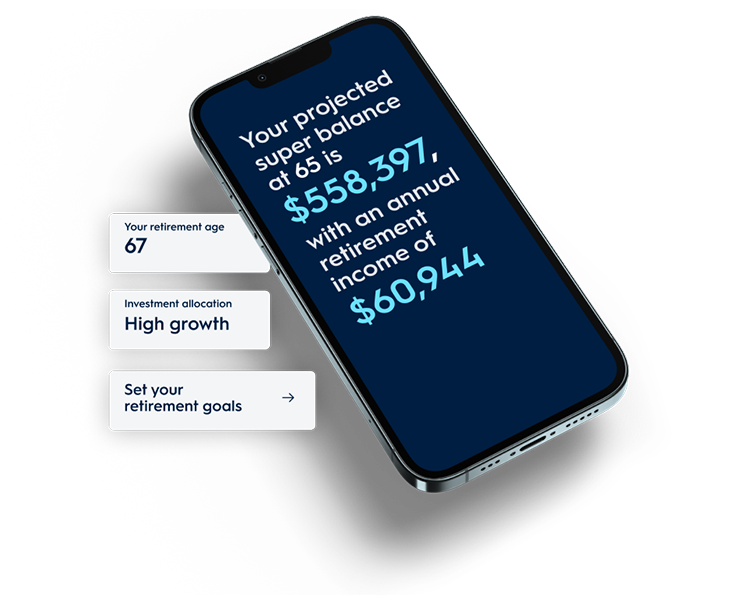
Whether lifestyle preferences or circumstances beyond your control are behind your decision to retire early, you’ll need to make a plan to help your retirement savings last, while still enjoying a few of your favourite comforts in life. Here are some retirement planning tips to consider when thinking about retiring early in Australia.
Understand how much money you may need in retirement
Assuming you own your home outright and are relatively healthy, the Association of Superannuation Funds of Australia (ASFA) estimates that single Australians will need $54,240 a year, while couples will need a combined $76,505 a year for a comfortable retirement. A comfortable retirement is defined as being involved in a broad range of leisure and recreational activities and having a good standard of living1.
That said, the question of how much money you’ll need in retirement really is an individual one. It largely depends on your current lifestyle and how you want to live when you’re retired.
Consider trying a AMP's Retirement Needs calculator to determine how much you'll need in retirement, and try out AMP's Retirement Simulator to see how much you'll have in retirement based on your current assets.
When can you withdraw your super?
You can access your super once you reach your preservation age, which ranges from age 55 to 60, depending on when you were born. But sometimes life forces events upon us, such as sickness, injury or redundancy, which could lead to an early retirement. If this applies to you, there are some circumstances when you may be able to have early access to super. You would need to contact your super fund provider to see if you qualify for accessing super early.
8 tips for an early retirement
If you’re dreaming of an early retirement, the following financial tips might help your dream become a reality.
1. Have a financial plan
It’s a good idea to have a financial roadmap that spells out things like your financial goals, expenses and debts so you always know where you are. A detailed plan can also help you stay on track with your goals, as you can check in regularly to see how your savings are going, and how any big expenses can set you back.
2. Set up your savings goal and reduce your expenses
You could consider spending less and saving more by embracing the FIRE (Financial Independence, Retire Early) philosophy of living frugally, saving hard and investing wisely. This means spending less now in order to put more aside for your retirement, so you may be able to better enjoy those work-free years.
3. Pay off your home loan
A mortgage is probably something you don’t want to take with you into retirement, so prioritise paying it off to give yourself greater financial freedom. If you can do this, then when you retire you won’t have to spend a portion of your savings on continued mortgage repayments. Plus, paying off your mortgage early (without incurring fees from your provider) could mean you pay less interest overall. Be sure to speak with your provider about maximum early repayments before making any changes.
4. Boost your super
While you may not be able to access it straight away, your super will most likely make up a major portion of your retirement savings, so increasing it while you’re still working is like making a payment to your future self. You could try adding lump-sum payments into your super whenever you can manage putting more money aside.
5. Create a retirement budget
Calculate how much you may need in retirement. You may not have as many expenses but you wouldn’t want your standard of living to drop substantially. Think about dividing your outgoings into essentials, like groceries and utility bills, and discretionary, like overseas trips and a new car. And consider how you’ll cover expenses like home repairs and renovations.
6. Increase your income
Are there ways you could increase your income in the lead-up to retirement? Could you increase your hours at your current role or take on more work? You could try anything from talking to your boss about a pay rise to putting a few hours of overtime occasionally.
7. Build the right investment portfolio
Make sure you’re investing in the right mix of assets to achieve your investment goals and build your wealth for retirement. You could consider talking to an adviser about developing an investment strategy that’s right for your particular circumstances.
8. Plan to cover healthcare costs
As you get older you could be faced with increased healthcare costs so it’s important to factor these into your long-term retirement budget.
You may also like
-

Four ways to maximise your Self-Managed Super Fund (SMSF) Here are four practical tips that could help you unlock more value from your SMSF, from managing cashflow to exploring property investment. -

How to buy an investment property through a Self-Managed Super Fund (SMSF) Discover how buying an investment property through a SMSF could help boost your retirement savings. -

What is a Self-Managed Super Fund (SMSF) and is it right for you? Discover what a Self-Managed Super Fund (SMSF) is, how it works, and whether it’s the right move for your financial future.
Important information
Any advice and information is provided by AWM Services Pty Ltd ABN 15 139 353 496, AFSL No. 366121 (AWM Services) and is general in nature. It hasn’t taken your financial or personal circumstances into account. Taxation issues are complex. You should seek professional advice before deciding to act on any information in this article.
It’s important to consider your particular circumstances and read the relevant Product Disclosure Statement, Target Market Determination or Terms and Conditions, available from AMP at amp.com.au, or by calling 131 267, before deciding what’s right for you. The super coaching session is a super health check and is provided by AWM Services and is general advice only. It does not consider your personal circumstances.
You can read our Financial Services Guide online for information about our services, including the fees and other benefits that AMP companies and their representatives may receive in relation to products and services provided to you. You can also ask us for a hardcopy. All information on this website is subject to change without notice. AWM Services is part of the AMP group.








